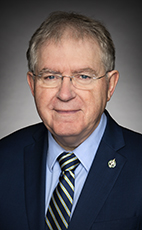432-00925 (Correctional system)
Original language of petition: English
Petition to the House of Commons
We, the undersigned citizens of Canada draw the attention of the Government of Canada to the following:
THAT there are often different versions of events between prisoners and healthcare staff regarding their interactions.
THAT when a prisoner accuses the medical staff of misconduct, there can be serious repercussions for the medical staff.
THAT when the medical staff accuses a prisoner of misconduct, there can be serious repercussions for the prisoner.
THAT if the health care staff were to wear body cameras that recorded video and audio of all interactions with prisoners, there would be documentation of the interaction and no question as to what was said, done and or not done.
THEREFORE, your petitioners call upon the Government of Canada to require healthcare staff who interact with prisoners in federal custody to wear body cameras that record audio and video of all interactions with prisoners (medical examinations should be audio recorded only), and for the Correctional Services Canada to retain the recordings to be used to come to the truth if there is a disagreement about the facts of an interaction where misconduct is alleged and to promote accountability and professionalism in federal correctional facilities.
Response by the Minister of Public Safety and Emergency Preparedness
Signed by (Minister or Parliamentary Secretary): JOËL LIGHTBOUND, M.P.
The Correctional Service of Canada (CSC) is mandated to provide essential health care and reasonable access to non-essential health care to federal inmates, in keeping with professional standards. Health care services must respect gender, cultural, religious and linguistic differences, and be responsive to the special needs of women, Indigenous peoples, persons requiring mental health care and other groups.
CSC has a National Essential Health Services Framework that outlines the guiding principles for providing essential and non-essential health services at CSC. On June 21, 2019, Bill C-83 –An Act to amend the Corrections and Conditional Release Act (CCRA) and another Act received Royal Assent. It is now part of legislation that CSC supports the professional autonomy and the clinical independence of registered health care professionals, including their ability to exercise, without undue influence, their professional judgement in the care and treatment of inmates. Consistent with the requirements of professional health regulatory colleges, the role of health care professionals includes a patient advocacy function for the provision of care that advances health and well-being. The Act clarifies this existing responsibility and supports health care professionals in meeting its obligation to provide patient centred care. Investments related to this legislation will enable CSC to respond to the needs of inmates’ with mental health concerns through assessment, early diagnosis, and early intervention for inmates requiring primary, intermediate and treatment center levels of care.
CSC’s priority is to protect the physical and mental health and overall safety of those who live and work within federal correctional institutions. CSC has a framework in place to establish safe correctional environments, which promotes effective correctional operations and interventions using dynamic security, and contributes to the safety of the public, staff, and offenders (Commissioner’s Directive (CD) 566 – Framework for Safe and Effective Correctional Environments). Specifically, all staff who directly interact with offenders must apply dynamic security practices while carrying out their responsibilities. This includes continually enhancing their knowledge of offenders’ activities and behaviours (both positive and negative) through direct observation and interactions. CSC promotes the use of dynamic security practices for the prevention of security incidents.
The suggestion of having health providers wear body cameras would constitute a violation of patient confidentiality and would be inconsistent with the ethical practice of health service provision and the application of individualized patient-centred care. CSC is not currently exploring their use at this time.
CSC employees are expected to carry out their duties with professionalism and consistently with the Services policies and mission – and of course, the law. They are expected to act according to legal and ethical standards, and are subject to the rules of professional conduct and code of discipline as stated in the CD 060 - Code of Discipline. Any misconduct towards an offender is a violation of CSC's mission, which is to provide a safe, secure, and humane environment conducive to the rehabilitation of all offenders in CSC's care.
All CSC staff members have the obligation to report any situation where they believe an offender is being mistreated, harassed or discriminated against by a staff member. CSC is responsible for resolving situations of mistreatment, harassment, or discrimination of which they are made aware, and to take immediate corrective action as appropriate. Upon becoming aware of such allegations, CSC will take action and assess the validity and seriousness of the allegations by obtaining the specific details of the case.
CSC does not tolerate failure by staff to abide by the rules of professional conduct and code of discipline that are outlined in CD 060 - Code of Discipline. All allegations of staff misconduct are thoroughly investigated by CSC and disciplinary measures may be taken, where appropriate, in accordance with the Government of Canada’s Guidelines for Discipline and the CSC’s Instrument of Delegation of Authorities in the area of Human Resource Management.
- Presented to the House of Commons
-
Jack Harris
(St. John's East)
May 7, 2021 (Petition No. 432-00925) - Government response tabled
- June 21, 2021
Only validated signatures are counted towards the total number of signatures.
